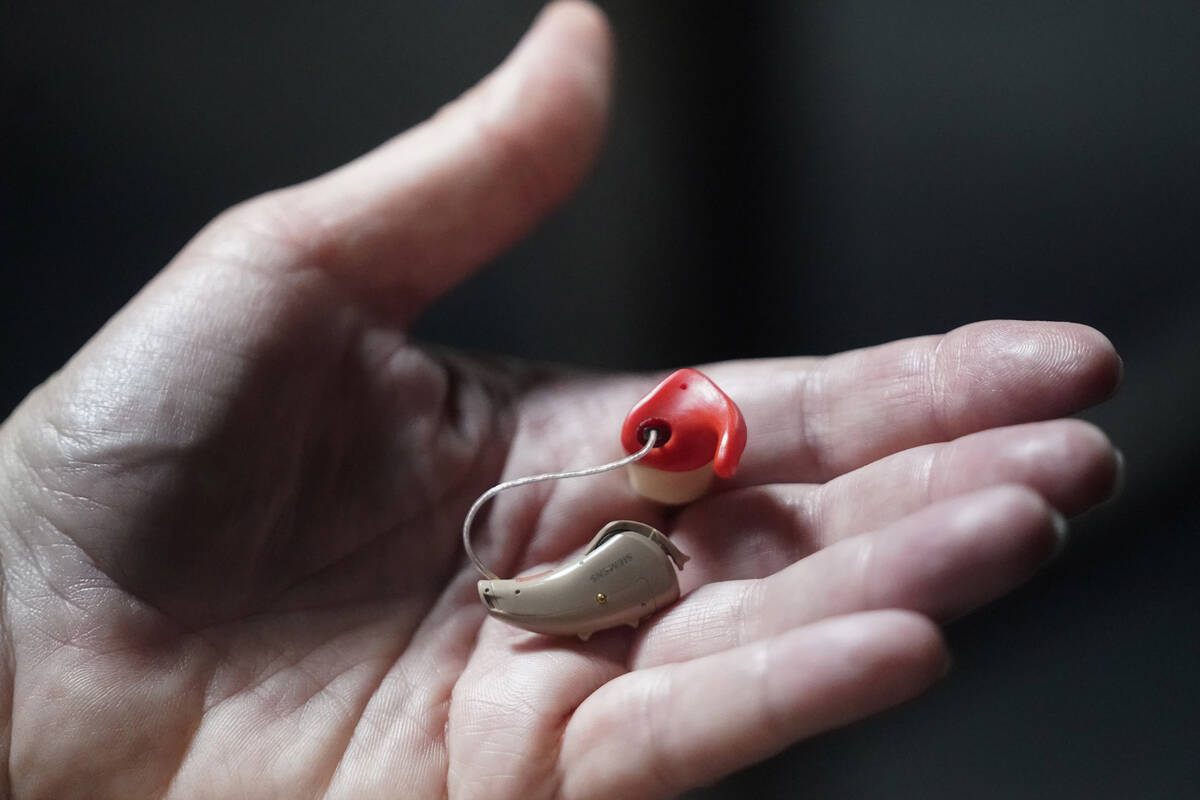Savvy Senior: Tips for buying over-the-counter hearing aids
Dear Savvy Senior: I’m interested in getting some of the new over-the-counter hearing aids that just became available a few months ago. Can you offer any tips? — Straining to Hear
Dear Straining: The FDA-approved over-the-counter hearing aids that started rolling out this fall are a game changer for the roughly 48 million Americans with hearing loss. Adults with impaired hearing can now walk in and buy hearing aids at a pharmacy, big-box store or online, without a prescription and without consulting an audiologist.
The Food and Drug Administration approved this new class of hearing aids to lower prices and improve availability.
About a third of people ages 65 to 74 and half of those over age 75 have hearing loss severe enough to affect their daily life. Yet about 80 percent of people who would benefit from hearing aids don’t wear them, according to the National Institutes of Health, primarily because of the hefty price tag.
Traditional hearing aids ordered through an audiologist cost $1,000 to $7,000 a pair and are not covered by most private insurers and traditional Medicare. The new OTC hearing aids range from $200 to $3,000.
Who should get them?
OTC hearing aids are specifically designed for adults who have mild to moderate hearing loss. You don’t need a hearing exam or prescription to buy them, and they are designed so you can fit and tune them yourself.
The signs of mild to moderate hearing loss are having trouble hearing or understanding conversations, especially in noisier environments, over the phone or if you can’t see who’s talking. Or if you need a higher volume of TV, radio or music than other people, or have to ask others to speak more slowly, louder or repeat what they said.
If your hearing problem is more severe than that, however, your hearing loss is considered more significant than over-the-counter aids are intended to address.
To help you get a basic sense of your hearing problem, you can take an app-based test like Mimi (mimi.health) or SonicCloud (soniccloud.com). If you find that your hearing loss is significant, you’ll need to work with an audiologist or hearing instrument specialist to find a hearing aid that works for you.
What to look for
To help you choose a good OTC hearing aid that meets your needs and preferences, here are some important points to keep in mind:
— Return policy: It can take weeks for your brain to adjust to hearing louder sounds through a hearing aid, so be sure to choose a brand that offers at least a 30-day free trial period. The FDA requires manufactures to print their return policy on the package.
— Setup: Many OTC hearing aids require a smartphone or computer to adjust and operate the devices to your specific needs, while others have the controls on the device. This will also be labeled on the box.
— Battery: The package also should tell you what kind of battery the device uses. Some of the older versions of hearing aids have replaceable batteries, but many of the newer ones have rechargeable batteries that come in a charging case.
— Customer support: Some companies offer unlimited customer support to help you adjust or fine-tune your hearing aids, while others might limit support or charge extra.
For more information, including product reviews, see the National Council on Aging’s OTC hearing aids buyer’s guide at NCOA.org/adviser/hearing-aids/over-the-counter-hearing-aids.
Send your senior questions to: Savvy Senior, P.O. Box 5443, Norman, OK 73070, or visit SavvySenior.org.




























